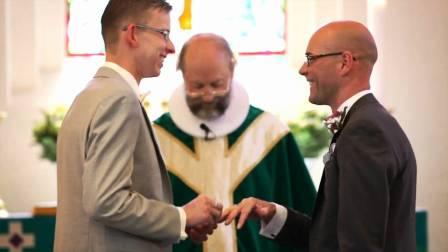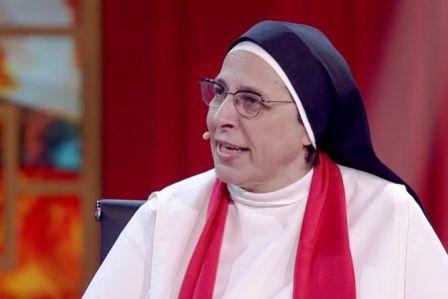Dominican Sister Lucía Caram, who lives in Spain but is Argentinian, said during a recent television program that she is in favor of homosexual couples being able to “marry in the Church.”
In recent years, the Catholic Church has found itself at a crossroads, facing complex questions about its stance on social issues, particularly regarding LGBTQ+ rights and gender equality. Amidst these challenges, voices like that of Dominican Sister Lucía Caram have emerged, advocating for a more inclusive and accepting Church. While her views may seem controversial to some, they represent a growing movement within the Catholic community that seeks to adapt to the evolving realities of the modern world.
Sister Lucía Caram’s recent statement in favor of allowing homosexual couples to marry in the Church has sparked a debate about the Church’s stance on LGBTQ+ rights. In a conversation with openly homosexual host Jorge Javier Vázquez, she boldly declared, “I would be in favor of gays getting married in the Church because God always blesses love.” This statement demonstrates a willingness to reevaluate traditional beliefs and embrace a more compassionate approach to issues of love and commitment.
Caram’s open-mindedness extends beyond her public statements. She counts Juan Carlos Cruz, a prominent LGBTQ+ activist and survivor of sexual abuse within the Church, as her best friend. Cruz’s appointment to the Pontifical Commission for the Protection of Minors by Pope Francis underscores the Vatican’s commitment to addressing past wrongs and building a more just and inclusive institution.
When asked about the morality of homosexual relationships, Sister Lucía Caram refrained from judgment, emphasizing that it is not her place to condemn anyone. Her response reflects the Church’s teaching that homosexual individuals should be accepted with respect, compassion, and sensitivity, avoiding unjust discrimination. In doing so, she aligns herself with the spirit of Pope Francis, who has called for a more compassionate and understanding Church.
Caram’s approach to issues of chastity and homosexuality stands in contrast to the Catechism of the Catholic Church, which characterizes homosexual acts as “intrinsically disordered.” However, she emphasizes the need for self-mastery and the support of disinterested friendship, prayer, and sacramental grace in achieving Christian perfection. This perspective acknowledges the complexities of human relationships and the importance of nurturing love and compassion.
It is important to note that Sister Lucía Caram’s views are her own and do not represent official Catholic doctrine. However, her willingness to engage in dialogue and challenge traditional beliefs highlights a broader shift within the Church towards a more open and inclusive approach.
Sister Lucía Caram’s advocacy for a more inclusive Catholicism should be seen as a positive development within the Church. Her support for LGBTQ+ rights and her commitment to a more compassionate and understanding faith reflect the evolving attitudes of many Catholics worldwide. As the Church grapples with the challenges of the modern world, voices like Caram’s remind us that it is possible to balance tradition with a more inclusive and empathetic approach, ultimately strengthening the Church’s mission to serve all of humanity.
THIS IS AN OPINION PIECE AND THE VIEWS EXPRESSED HEREIN ARE ENTIRELY THOSE OF THE AUTHOR AND NOT NECESSARILY THOSE OF NEWSNET ONE EDITOR AND STAFF



